Top ERP Features Every Business Needs to Stay Competitive

In an increasingly digital world, businesses are realizing that managing multiple software systems and fragmented data is no longer effective. To stay competitive, companies need a unified, streamlined system that can support all aspects of their business. This is where Enterprise Resource Planning (ERP) systems come into play. Modern ERP solutions offer a broad range of features that help businesses automate tasks, improve efficiency, and gain real-time insights into operations.
In this blog, we’ll explore the top ERP features that every business should look for to stay competitive in today’s market.
1. Financial Management and Reporting
Managing finances efficiently is at the heart of any business, and an ERP system with robust financial management capabilities is essential. ERP solutions provide tools for managing general ledger, accounts payable and receivable, budgeting, and financial reporting in a centralized system.
Key Benefits:
- Automated financial transactions: Automates the accounting process, reducing manual errors.
- Comprehensive financial reporting: Provides real-time financial reports and insights, helping business leaders make data-driven decisions.
- Compliance: Ensures adherence to financial regulations, including tax codes and auditing requirements.
With this feature, businesses can streamline their financial operations, stay compliant, and get a clearer picture of their financial health.
2. Supply Chain Management (SCM)
Efficient supply chain management is crucial for companies that deal with manufacturing or inventory management. ERP systems with SCM functionality help businesses track their products from supplier to customer, ensuring timely deliveries, reducing waste, and optimizing inventory levels.
Key Benefits:
- Inventory control: Keeps track of inventory levels, helping businesses avoid stockouts or overstocking.
- Supplier management: Allows businesses to manage supplier relationships, track orders, and optimize procurement processes.
- Demand forecasting: Provides insights into trends, helping businesses anticipate and meet customer demand more accurately.
With advanced supply chain features, ERP systems help businesses optimize the flow of goods and services, reducing costs and enhancing customer satisfaction.
3. Customer Relationship Management (CRM)
Customer satisfaction is a key factor in maintaining a competitive edge. ERP systems with integrated Customer Relationship Management (CRM) features allow businesses to manage customer interactions, track sales leads, and maintain customer data in a centralized location.
Key Benefits:
- Lead management: Tracks and manages leads, ensuring that no opportunity is lost.
- Customer support: Provides tools for customer service teams to track customer issues and provide timely resolutions.
- Marketing automation: Supports marketing campaigns by automating customer segmentation, outreach, and follow-ups.
By integrating CRM features into your ERP system, businesses can foster better customer relationships, improve sales, and boost customer loyalty.
4. Human Resources and Payroll
Human resources is another critical aspect of business operations. ERP systems often come with HR modules that handle employee records, payroll, time tracking, benefits, and performance management.
Key Benefits:
- Payroll automation: Automates payroll processing, ensuring timely and accurate salary payments.
- Employee management: Helps businesses track employee performance, attendance, and personal details.
- Compliance: Ensures compliance with labor laws and regulations, reducing the risk of penalties.
With HR management integrated into the ERP system, businesses can streamline their HR operations and ensure they are compliant with the latest regulations.
5. Business Intelligence and Analytics
One of the most powerful features of modern ERP systems is the ability to turn raw data into actionable insights. Business Intelligence (BI) and analytics tools embedded in ERP systems provide real-time dashboards and reports to help decision-makers understand trends, monitor performance, and forecast future business needs.
Key Benefits:
- Real-time analytics: Provides insights into various business functions, such as sales, inventory, and customer behavior.
- Data visualization: Displays complex data in easy-to-understand graphs, charts, and reports.
- Informed decision-making: Helps managers make data-driven decisions with up-to-date, accurate information.
BI tools in ERP systems enable businesses to uncover hidden opportunities, optimize processes, and make better strategic decisions.
6. Cloud Integration and Mobile Access
As businesses increasingly adopt remote work and mobile solutions, it’s important for ERP systems to offer cloud-based functionality and mobile accessibility. Cloud ERP systems enable businesses to access their data and applications from anywhere, at any time, on any device.
Key Benefits:
- Remote access: Access your ERP system from any location, facilitating remote work and improving team collaboration.
- Cost-effectiveness: Cloud-based solutions typically offer lower upfront costs and eliminate the need for on-premise IT infrastructure.
- Scalability: Cloud-based ERPs can scale with your business, allowing you to add users and modules as needed.
Cloud and mobile accessibility are increasingly becoming must-have features for businesses that want flexibility and scalability.
7. Integration with Third-Party Systems
In a complex business environment, it’s important for your ERP system to seamlessly integrate with other software and applications. Whether it’s integrating with your eCommerce platform, CRM system, or external financial tools, an ERP solution that offers robust integration options can make a huge difference.
Key Benefits:
- Data consistency: Ensures all your systems share the same data, reducing the risk of errors or data silos.
- Automation: Streamlines workflows by automatically transferring data between systems, eliminating the need for manual data entry.
- Flexibility: ERP systems with flexible integration capabilities allow businesses to easily add new tools and technologies as they grow.
Having an ERP system that integrates well with other systems gives businesses the flexibility they need to operate efficiently.
Conclusion
In today’s competitive landscape, businesses cannot afford to operate without a comprehensive ERP solution that helps streamline operations, improve efficiency, and provide real-time insights. The features outlined in this blog—financial management, supply chain management, CRM, HR, business intelligence, cloud access, and integration—are essential for businesses looking to stay competitive and grow in 2024. When selecting an ERP solution, ensure that it includes the features that are most relevant to your business needs, and choose a system that is scalable and flexible enough to support your company’s future growth.

